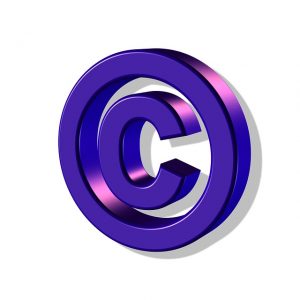 Copyrights can’t protect everything. Namely, they don’t protect ideas. Copyrights can protect a finished work, a concrete, patented piece of software or an invention. The idea, on the other hand, is pretty much up for grabs. In other words, there’s really nothing to stop, say, a competitor in the mobile games industry from taking a prototype of your next release and paying their staff to clone it. As long as they’re not actively copying and pasting code and graphics from your game into theirs, there’s not much you can do about it.
Copyrights can’t protect everything. Namely, they don’t protect ideas. Copyrights can protect a finished work, a concrete, patented piece of software or an invention. The idea, on the other hand, is pretty much up for grabs. In other words, there’s really nothing to stop, say, a competitor in the mobile games industry from taking a prototype of your next release and paying their staff to clone it. As long as they’re not actively copying and pasting code and graphics from your game into theirs, there’s not much you can do about it.
Copyrights protect literary works, computer programs, dramatic and musical works, recordings, film and video, magazine articles, basically anything that exists in concrete, finished form. Copyrights do not protect names, slogans, phrases, titles, or industrial processes. Patents and trademarks can cover some of the items mentioned, but the gist of it is that copyrights are only there to keep people from taking credit for your finished work. Copyrights won’t stop anyone from stealing your ideas and developing them on their own.
Candy Crush is a famous example of a piece of software that many believe was taken piece-for-piece from an existing app. Candy Swipe predates Candy Crush, plays almost identically, but was produced for less money and released with less marketing. By 2014, Candy Crush had over 60 million likes on Facebook, while Candy Swipe had just over 50,000.
So what can we do when our ideas aren’t protected? Sometimes, the answer is “not much.” In the case of Candy Swipe, it wasn’t really their fault. Their product designs weren’t leaked, the game had already been publicly released, and a larger company seems to have borrowed their design without a second thought. Luckily, there are measures that sometimes work to keep others from taking our ideas:
- Cater to a niche market. A massive corporation has no interest in stealing a piece of software with a market of only a few hundred users.
- Offer what our competitors won’t. Better support, for instance.
- Stay secure. With strong security measures and insurance in place, you at least don’t need to worry about any idea-swipers beating you to launch. This includes letting your staff know not to leak anything before you’re ready to go public. On that note…
- Always budget for marketing. It’s not just about making sales, it’s about staking your claim to an idea in the public consciousness.
Dealing with the occasional plagiarist is part of doing business. You can’t stop anyone from cloning your app, but there are ways to stay a step ahead of companies with no ideas of their own.





